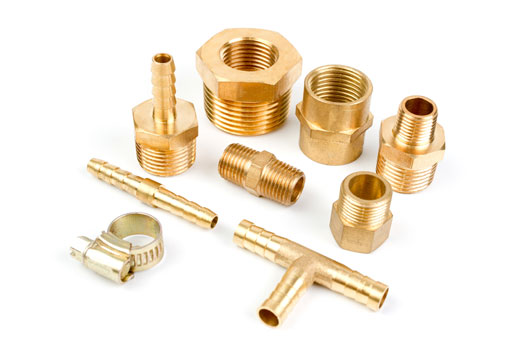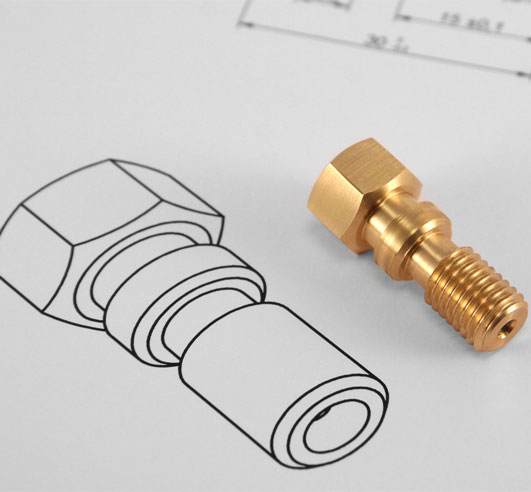CNC Brass Parts Milling: An In-Depth Guide to Precision Processing
Brass is a versatile and highly customizable alloy that is widely used in the manufacturing of mechanical parts. Through insightful input from engineers and designers, brass parts can be crafted to fit specific shapes and customized functions. With the help of CNC milling, businesses and individuals can avail high-quality, precision-based manufacturing for brass components. This detailed guide will help you explore the ins and outs of CNC brass parts milling and processing.
What is Brass and Why is it Important in CNC Milling?
Brass is an alloy of copper and zinc that is known for its excellent machinability, resistance to corrosion, and overall durability. With varying combinations of copper and zinc content, brass can be tailored to achieve specific mechanical properties that make it suitable for a wide range of applications. Due to its excellent thermal and electrical conductivity, brass is commonly used in applications requiring heat and electrical transfer, such as plumbing fittings, electronics, and musical instruments.
CNC milling refers to the computer-controlled process of removing material from a workpiece using a rotating cutting tool. Thanks to its accuracy and efficiency, CNC milling has become a popular choice for manufacturing brass parts. With precise control over cutting tools, CNC machines can create intricately detailed and highly accurate brass components, making them ideal for industries that require a high level of precision.
Advantages of CNC Brass Parts Milling
When selecting a material and manufacturing process for your component, consider the benefits offered by CNC brass parts milling:
1. High precision: CNC machines can achieve incredibly accurate tolerances, ensuring that your brass parts meet exact specifications.
2. Efficiency: CNC milling machines can operate 24/7 with minimal human intervention, allowing for consistent and efficient production.
3. Flexibility: CNC machines can handle complex and intricate designs with ease, making them perfect for manufacturing custom brass parts.
4. Rapid prototyping: CNC milling machines can quickly produce a prototype, allowing you to refine designs faster.
5. Cost-effective: In the long run, investing in CNC milling for brass parts can lead to significant savings in materials, labor, and time.
Factors to Consider When Choosing CNC Brass Milling Services
When selecting a CNC brass parts milling service, it's essential to consider the following factors:
1. Material selection: Ensure that the mill you choose has expertise in machining brass and can offer the specific alloy composition you require for your desired mechanical properties.
2. Experience: Verifying a CNC milling service's portfolio and past projects for brass parts can help you gauge the expertise and quality of their output.
3. Customer service: A company that is responsive, proactive, and attentive to your needs is a good sign that they'll deliver an excellent product.
4. Pricing: Evaluate different CNC brass milling service providers on their pricing policies and ensure they can provide accurate quotes for your project.
5. Lead times: Evaluate the lead times provided by the CNC brass milling service, considering factors such as production capabilities, workload, and resource availability.
Frequently Asked Questions
1. How do I choose the right brass alloy for my project?\
When selecting the right brass alloy, consider factors such as the material's mechanical properties, its corrosion resistance, the complexity of the design, and the manufacturing process. Consult with a qualified metallurgist or engineer to choose the perfect alloy for your needs.
2. What is the difference between CNC milling and CNC turning?\
CNC milling and CNC turning are two common machining processes, and both are used to create precision parts. Milling involves a workpiece mounted on a multi-axis machine, while the cutting tool moves along a linear path. Turning involves a rotating workpiece, and the cutting tool moves in a linear motion.
3. What are typical tolerances for CNC brass milling?\
CNC brass milling can achieve tolerances as tight as ㊣0.001 inches or better, though it varies depending on factors such as the machine, cutting tools, and milling process chosen.
4. What industries benefit from CNC brass milling?\
CNC brass milling is widely used in the automotive, aerospace, electronics, marine, medical, and musical instrument industries. As a highly versatile manufacturing method, it caters to virtually any industry that requires precision brass components.
5. Can I produce a single prototype with CNC brass milling?\
Yes, CNC brass milling can efficiently produce singular prototypes, allowing you to refine and perfect your design before investing in high-volume production.
By now, you should have a fair understanding of the intricacies revolving around CNC brass parts milling and processing. Armed with this knowledge, you can make an informed decision and choose the perfect CNC milling service provider to cater to your specific project requirements. Not only will this help you obtain high-quality precision brass parts, but also play an instrumental role in streamlining your overall production plan.
cnc brass parts milling processing quotes







